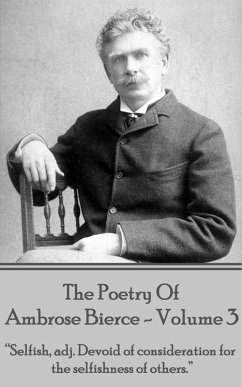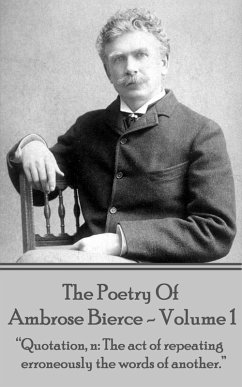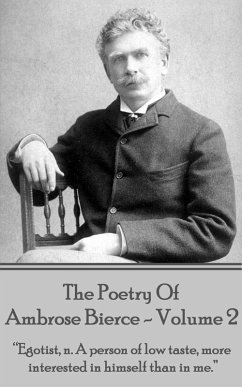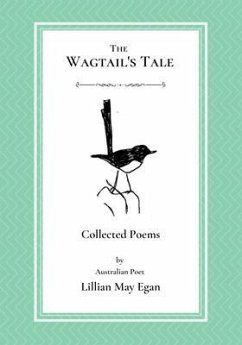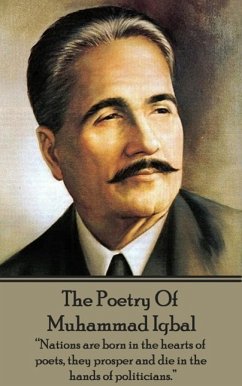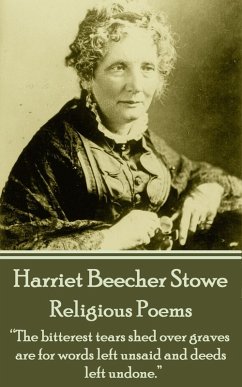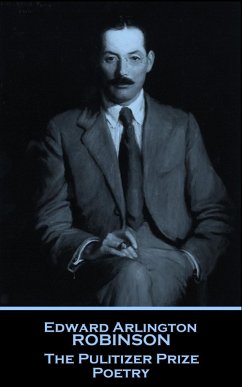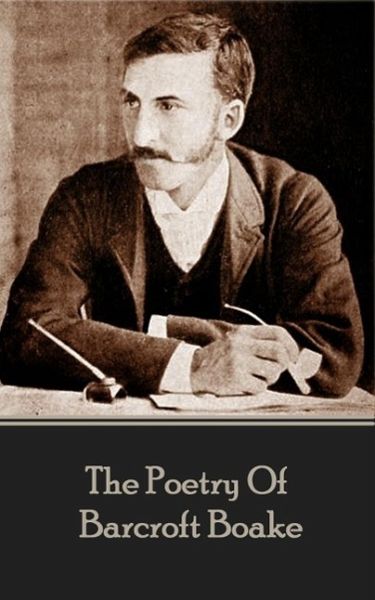
The Poetry Of Barcroft Boake (eBook, ePUB)

PAYBACK Punkte
0 °P sammeln!
Barcroft Henry Thomas Boake was born on March 26th 1866 at Waterview Bay, Balmain in New South Wales, Australia. One of nine children, three who died in infancy, Barcroft was an active, enthusiastic child but fell early to worrying signs of depression. His father, had Barcroft educated privately. Between 8 to 9 he attended a school run by the Misses Cook at Milson's Point and then two years with Allen Hughan and his wife, friends of the family, in Noumea, where he also acquired a grounding in French. On his return he had two terms at Sydney Grammar School and then five years at the private sch...
Barcroft Henry Thomas Boake was born on March 26th 1866 at Waterview Bay, Balmain in New South Wales, Australia. One of nine children, three who died in infancy, Barcroft was an active, enthusiastic child but fell early to worrying signs of depression. His father, had Barcroft educated privately. Between 8 to 9 he attended a school run by the Misses Cook at Milson's Point and then two years with Allen Hughan and his wife, friends of the family, in Noumea, where he also acquired a grounding in French. On his return he had two terms at Sydney Grammar School and then five years at the private school of Edward Blackmore. By age 17 he had begun work with a surveyor in Sydney, passing the entrance examination to the Survey Department and worked in it for a year. The rest of his life was now spent almost entirely as surveyor, stockman or drover outside Sydney. He didn't feel suited to the constraints of office life and yearned for the outdoors which is reflected in much of his poetry. However the dark forces of melancholia were difficult to contain and it was at Rocklands station on the evening of 14 July 1888 that he inadvertently almost took his life. For a prank he and a friend hanged themselves from a beam. The friend's performance was half hearted but Barcroft's proved almost fatal. The next chapter in his short life was that of drover. In October 1889 he ended up with cattle at Burrenbilla, near Cunnamulla. There he spent some weeks waiting for his next job, and for the first time read in their entirety the poems of Adam Lindsay Gordon. His comments are revealing: 'Gordon is the favourite-I may say only poet of the back-blocker; and I am sorry to say Emile Zola is his favourite prose writer ... I am afraid after all the bushman is not a very fine animal; but at any rate, even in his most vicious moments, he is far above many of the so-called respectable dwellers in towns. If I could only write it, there is a poem to be made out of the back-country. Some man will come yet who will be able to grasp the romance of Western Queensland ... For there is a romance, though a grim one-a story of drought and flood, fever and famine, murder and suicide, courage and endurance ... I wonder if a day will come when these men will rise up-when the wealthy man...shall see pass before him a band of men-all of whom died in his service, and whose unhallowed graves dot his run-the greater portion hollow, shrunken, burning with the pangs of thirst'. A few weeks later he went south with cattle to Bathurst, where he arrived in March 1890. After a week in Sydney with his family he returned to Bathurst but an expected job fell through, and once more he returned to surveying. From May 1890 until December 1891 he worked for W. A. Lipscomb, with headquarters near Wagga Wagga; within this time all but a few of his poems were published in the Bulletin. Barcroft returned home at the end of 1891 to find times were bleak. His father was practically bankrupt, having lost the last of his money in Melbourne land speculations. Barcroft contributed his savings, some £50, to cover immediate household expenses. His father wrote at the time: 'His grandma was invalided and confined to her bed and his eldest sister had found marriage a failure and was domiciled with me her husband being a helpless creature was dismissed from the Railway Dept., I myself was hopeless about everything and quite unfit to cope with the fiend melancholia that I plainly saw was oppressing him'. His father also mentions some news that alarmed Barcroft received: 'About this time he received a letter from the country, and in reference to it said to one of his sisters: "I hear that my best girl is going to be married".' It was a blow that seemed to sink him. He made a few attempts to find work in the city but these proved futile and he sank into brooding inactivity. On May 2nd 1892 he left the house. Eight days later his body was discovered in the scrub at Long Bay, Middle Harbour, hanging by his stock whip from a bough.
Dieser Download kann aus rechtlichen Gründen nur mit Rechnungsadresse in D ausgeliefert werden.




